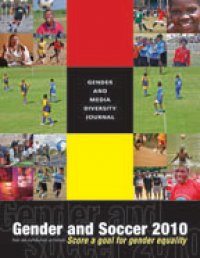Author Archives: Joseph Robertson
E.J. Dionne Calls for Politics of Conscience in Villanova Speech
In a speech to a packed room at Villanova University, during the university’s three-day celebration of the legacy and work of St. Thomas of Villanova —a celebration that includes scholarly presentations, community gatherings, this keynote address and a day of service in which thousands fan out across the region to do charitable work—, E.J. Dionne called for a politics rooted in conscience and compassion for our fellow human beings. The acclaimed journalist, scholar and Washington Post columnist rooted his talk in Catholic Social Teaching and spoke of an historical drive, in the US, toward comprehensive social justice.
In Defense of the Book, in All its Forms
Today is the Day of the Book, in part spurred by the urge to recognize two of the great progenitors of modern literature, William Shakespeare and Miguel de Cervantes Saavedra, who both died on 23 April 1616, at least according to the official history. Their work and the various arts that go into making books, as such, are celebrated around the world as staples of modern global civilization and the human element of culture. But the book is more than those sweeping historical energies; it is a concrete, observable register of intent and of meaning, which carries evidence of our humanity forward and informs and improves future worlds.
Germinal Gender Narrative: Teaching the Media to Relay the Message
Article published in Issue 8 of the Gender & Media Diversity Centre’s Southern Africa Media […]

Writing & Naming: the Medicine of Acquiring Knowledge
Through the work of writing, I have learned first and foremost that nothing is what […]
Ecology is About Awareness, not a System of Control
The field of ecological research and reporting is a part of the basic human urge to engage the world through reason and a quest for understanding. It is not about seizing control of society’s urges and services and limiting the freedom of anyone, but rather about making sure we have the information we need to make the best choices, then advocating for those choices, when inertia and custom stand in the way of better health — for individuals and in the manner in which human individuals respond to their social and natural environments.
Kindle DX: Beautiful, Focused, Comfortable, Imperfect, Inspired & Worth ‘Reading’
The Amazon Kindle DX is a beautiful device. Its design is user-friendly, intuitive and cohesive. It is clean-edged, minimal and thinner than many major magazines. Its format size is comfortable and makes tactile sense; it feels like something you hold in order to read, giving it a useful aesthetic kinship to books or magazines, a vast improvement on smaller e-reading devices. It is, in point of fact, far more comfortable than planting yourself in front of a computer monitor to read large amounts of text.
Apple Projected to Release 10-inch Touchscreen Tablet, September 2009
The Financial Times is the latest publication to weigh in on mounting expectations that Apple will release a touchscreen tablet computer this fall. There are rumors the computer maker is hoping to counter the rise of cheap netbooks with something lower-cost than their standard Macs and with a larger screen based on the model of the iPod Touch and the iPhone. The news could mean a breakthrough in personal computing standards and even portability of the workplace.
Walter Cronkite Has Died
American journalism has lost one of its elder statesmen. Walter Cronkite was one of the founding fathers of broadcast journalism, pioneering a warm, conversational style for delivering facts with detachment and gravitas. The old-style newsman delivered news to the American viewing public about John F. Kennedy’s assassination, the civil rights movement, the Vietnam war, the protests of the 1960s, the Moon landing (40 years ago Monday), Watergate and other major moments of crisis and achievement.
Gérmenes y obstáculos
libertad aquella musa
aquel ritual de autodesconcepción
el reto que guía o confunde
siguiendo líneas que no vemos
finos hilos de ópalo y vapor
matriz y desvergüenza…
Lessons for Cross-cultural Communication in What was Not Done in 19th Century France
We must, in this age of integration and complexity, work to recognize those areas where we can learn from cultures that build into our own, that enrich or sustain us, that give humanity, broadly, its metaphysical sense, its creative-adaptable quality. We know France as a place of great culture and profound philosophical insights and a highly developed legal system. But we tend not to think of France as a country whose most famous culture is simply one of many that came to dominate, and very really did stamp out the other cultures competing for survival, in a fractious agrarian society outside the capital, in the 19th century.
Poetry is a Vehicle of Meaning, Necessary Now as Ever
Poetry is the frontier where language in use comes in contact with future meaning, and in the process, when best executed, brings a wealth of transcendent truths into the present. Poetry is relevant to all uses of language, though there may be trends that suggest popular culture is looking to new forms of poetic activity to replace specific old models: many musical artists now play the role of mythic historian or wandering troubadour, but poetry is not confined to these purposes.
Culture, Diversity & Resilience: a Redefinition of Wealth
Knowledge is wealth in its purest form, fully possessed by and inseparable from the individual. As noted in previous sections of this essay, the application of deliberately obtained knowledge to complex situations establishes the sovereignty of the individual. Variety is wealth insofar as it offers an array of options which may be combined in countless ways to confront the problems of living in the world. Variety in knowledge offers adaptability, and adaptability is the key to survival and prosperity at all levels. Ultimately, resilience, rooted in such flexibility, is the real meaning or value of wealth, of any kind.